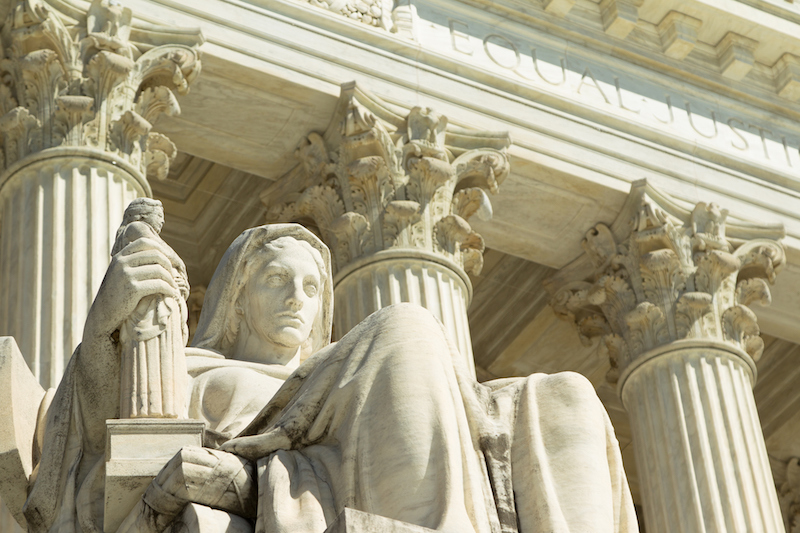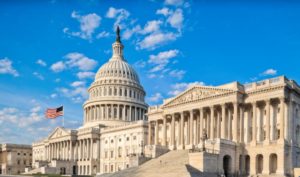
Despite speculation about his intent to fire the special counsel, President Trump is not above the law.
If President Donald Trump takes steps to remove special counsel Robert Mueller—such as first removing Deputy Attorney General Rod Rosenstein or Attorney General Jeff Sessions—many Americans are likely to see this as an admission of the President’s own guilt. Removing Mueller will also be seen as a form of self-dealing of the highest order and a violation of the fundamental norm of government under law.
How Republicans in Congress ultimately respond may depend in large part on how they and the President’s core supporters have been primed to think about the propriety of Mueller’s investigation and the President’s legal authority to rein it in. The White House has been working to cast doubts on Mueller’s legitimacy while at the same time suggesting that the President possesses unfettered authority to see Mueller removed.
But as a legal matter, the President does not have unfettered authority. Presidents are not above the law. And the law—in the form of a U.S. Department of Justice (DOJ) regulation—states that special counsel Mueller can only be removed “for misconduct, dereliction of duty, incapacity, conflict of interest, or for other good cause, including violation of Departmental policies.”
Granted, what exactly counts as “good cause” has never been squarely addressed by the courts. Presumably it means that a removal is based on a reason akin to “misconduct,” “dereliction of duty,” “incapacity,” or “conflict of interest.”
More than that, it is absolutely clear that “good cause” demands a reason beyond just “anything goes.”
In upholding various for-cause limitations on removal in the past, the U.S. Supreme Court has consistently viewed for-cause provisions as “restricting” the President’s removal authority, at least to some degree. When statutes and regulations stipulate grounds for removal, including “good cause,” that means that Presidents no longer can remove government officers for virtually any reason they wish.
At a minimum, for-cause provisions keep Presidents from using their removal power merely to advance their own base self-interests, such as to protect themselves or their family members from legal scrutiny. In the 1953 case of Ramspeck v. Federal Trial Examiners Conference, the Supreme Court opined that a statute requiring “good cause” protected federal hearing examiners from removal based on “whim or caprice” and “political reasons.”
Even without for-cause protection, a President’s use of the removal power to advance a crime, such as obstruction of justice, would be improper. Some lawyers may question whether a President can be indicted for using the removal power for criminal purposes, but surely it cannot be seriously entertained that such action would have a “good” cause.
These basic principles speak directly to the current investigation surrounding President Trump and his associates. These principles make clear that, to comply with the DOJ regulations, any removal of the special counsel must be based on something other than President Trump’s obvious self-interest in putting a stop to the special counsel’s inquiry.
Yet despite such self-interest appearing to be the only source of the President’s frustration with Mueller, the White House press secretary claimed last week that “we’ve been advised that the President certainly has the power” to remove Mueller.
On what source might such advice have been based? A recent essay by Richard Pierce, a distinguished administrative law scholar at George Washington University, suggests one speculative answer: U.S. Solicitor General Noel Francisco, the government’s top litigator—and the DOJ official who would assume responsibility for overseeing Mueller if President Trump should fire Rosenstein.
According to Pierce, Francisco has argued in a recent Supreme Court brief in an unrelated case that “good cause” essentially means whatever the President wants it to mean. Pierce says the brief provides an “obvious link” to the White House’s claim that Mueller can be fired.
That other case, Lucia v. SEC, centers on a dispute over administrative law judges (ALJs) who work for the Securities and Exchange Commission (SEC). Removal of an ALJ is subject to a for-cause limitation similar to the one in the special counsel regulations. Pierce claims that the Solicitor General argued in Lucia that “the court should interpret ‘for cause’ to include virtually any reason a government official gives for removing an administrative law judge.”
Pierce’s suggestion about Francisco’s brief merits a closer look because Pierce may be unintentionally lending credence to the very view of unconstrained presidential removal power that he presumably (and correctly) rejects. When such an august legal scholar implies that the Solicitor General has essentially signed off on firing Mueller for any reason, people may end up giving the Solicitor General’s view more weight than it deserves.
That risk is especially pronounced because the government’s brief in Lucia does not actually provide “the president a green light to fire Mueller” by “interpreting ‘for cause’ to include virtually any reason,” as Pierce claims.
The Solicitor General’s overall argument in Lucia is limited by the fact that both the ALJs and the SEC Commissioners have for-cause removal protection in that case, giving rise to concerns that this arrangement is unconstitutional under the 2009 Supreme Court decision in Free Enterprise Fund v. Public Company Oversight Board.
In Free Enterprise Fund, the Court held unconstitutional a provision of the Sarbanes-Oxley Act that gave for-cause protection to the head of sub-agency officials operating under the SEC’s supervision. The Court said that this double layer of for-cause protection created too much of a barrier for adequate presidential oversight of the sub-agency.
The Solicitor General makes clear in his Lucia brief that, if a court were to construe for-cause restrictions on ALJs working for the SEC in too rigorous of a fashion, the arrangement would place the Commission “effectively in the same position as…in Free Enterprise Fund.”
This concern simply does not apply to the Mueller situation, where only the special counsel has for-cause protection, not the Attorney General or Deputy Attorney General. In other words, no comparable concerns about layering exist that might imply a need to construe “good cause” loosely.
A still more basic reason exists to question the link between the Lucia brief and the assertion that Mueller could be fired for virtually any reason: the brief does not even make that broad assertion about ALJs. The Solicitor General argues instead that the SEC must be able to remove ALJs for “appropriate job-related reasons,” such as if they “refuse to follow agency policies and procedures,…frustrate the proper administration of adjudicatory proceedings, or…demonstrate deficient job performance.”
The Solicitor General also cites Ramspeck and acknowledges that for-cause restrictions can validly protect hearing examiners from being discharged for arbitrary and political reasons. He makes clear that “an ALJ would still be protected from removal for invidious reasons otherwise prohibited by law.” And getting closest to the special counsel situation, he admits that “the President, acting through his principal officers, would be restrained from removing an ALJ in order to influence the outcome in a particular adjudication.”
None of this guarantees, in the end, that Mueller will not be fired. If the President removes Rosenstein, then maybe the Solicitor General would indeed be willing to do the President’s bidding. But if the Solicitor General would want to make the removal of Mueller look even remotely legal, he will have to gin up—or should we say trump up?—charges that Mueller has violated some DOJ policies or has otherwise precipitated some “good cause.”
The Solicitor General is surely smart enough to know that it would be completely transparent why he would be removing Mueller. And he will not be able to rely on his Lucia brief—or any credible legal argument—to try to justify his action on the totally specious grounds that “good cause” can mean “anything goes.”
This essay is part of a three-part series, entitled Can President Trump Get Rid of Robert Mueller?




